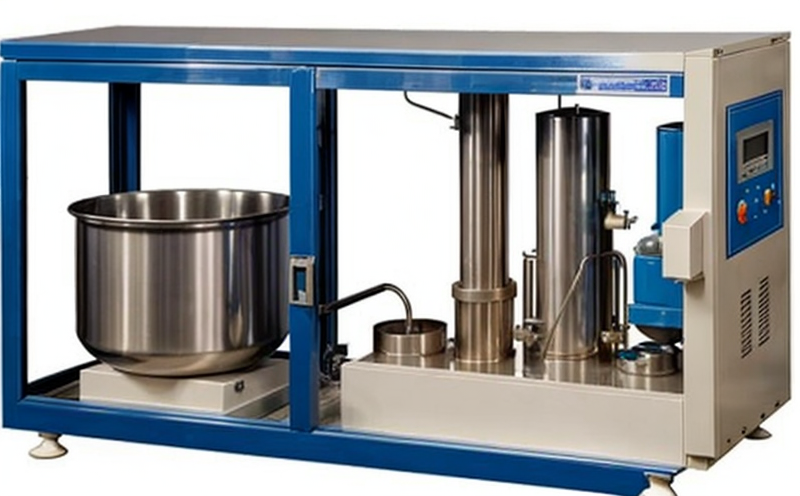AOAC 2000.03 Zearalenone Profiling in Maize-Based Feed
The AOAC International method 2000.03 is a widely recognized procedure for the quantification of zearalenone, a mycotoxin that can pose significant risks to both animal health and productivity when present at high levels in feedstocks like maize (corn). This test is particularly relevant for those involved in food & feed safety testing as it ensures compliance with international standards such as ISO 13722 and ASTM E2386.
The mycotoxin zearalenone can cause reproductive disorders, immunosuppression, and other health issues in livestock. Therefore, its detection and quantification are crucial for ensuring feed safety and animal welfare. The AOAC 2000.03 method involves the extraction of zearalenone from maize-based feeds followed by analysis using liquid chromatography-tandem mass spectrometry (LC-MS/MS). This ensures high sensitivity, accuracy, and precision in determining the exact concentration of zearalenone.
Our laboratory has extensive experience in this area and utilizes state-of-the-art equipment to deliver reliable results. The process begins with a thorough sampling of maize-based feeds from various batches or lots to ensure representativeness. Specimens are then prepared according to strict protocols, ensuring that all samples undergo the same rigorous treatment steps.
- Sampling
- Preparation
- Liquid Chromatography-MS/MS Analysis
The use of LC-MS/MS allows for accurate quantification even at very low concentrations. The method's limits of detection (LOD) and quantitation (LOQ) are well-documented, ensuring that all results meet or exceed regulatory requirements.
Understanding the impact of zearalenone on different types of livestock is crucial. For instance, in swine production, excessive exposure to this mycotoxin can lead to infertility and early termination of pregnancies. By profiling zearalenone levels using AOAC 2000.03, we help our clients ensure that their feeds are safe for consumption by animals.
Our laboratory adheres strictly to the method's protocol, ensuring consistent and accurate results. The process involves several critical steps:
- Sample Preparation: Samples are ground into a fine powder using standardized procedures to enhance extraction efficiency.
- Liquid Chromatography-MS/MS Analysis: Extracts are then analyzed via LC-MS/MS, which provides precise quantification of zearalenone present in the feed.
- Data Interpretation and Reporting: Results are interpreted by our experienced staff and reported back to clients with detailed explanations and recommendations for future actions if necessary.
The importance of this test cannot be overstated, especially given its role in maintaining animal health and productivity. By ensuring that zearalenone levels remain within safe limits, we contribute significantly towards sustainable agricultural practices and responsible food production.
Why Choose This Test
The AOAC 2000.03 method for zearalenone profiling in maize-based feed is a critical tool for maintaining the highest standards of food & feed safety. Here are some reasons why choosing this test is essential:
- Regulatory Compliance: Ensures adherence to international and local regulations regarding mycotoxin levels.
- Precision and Accuracy: Utilizes advanced LC-MS/MS technology for precise quantification, even at very low concentrations.
- Representative Sampling: Carefully selected samples ensure that the results accurately reflect the overall quality of the feed.
- Rigorous Protocol: Strict adherence to AOAC 2000.03 ensures consistent and reliable outcomes every time.
- Expert Staff: Our team comprises highly trained professionals who interpret data and provide actionable insights.
- Data Transparency: Clients receive detailed reports including raw data, analysis methods, and interpretation.
In summary, the AOAC 2000.03 method offers unparalleled accuracy and reliability in detecting zearalenone levels in maize-based feeds, making it an indispensable tool for any quality manager or compliance officer working within this sector.
Quality and Reliability Assurance
The AOAC 2000.03 method is underpinned by robust quality assurance processes that ensure consistent, accurate results across all samples analyzed. Our laboratory employs a stringent Quality Management System (QMS) based on ISO/IEC 17025:2017 standards to maintain the highest levels of integrity and accuracy in our testing services.
Our commitment to quality begins with rigorous training programs for our staff, ensuring they are up-to-date with the latest methodologies and technologies. Regular calibration of instruments using certified reference materials further enhances precision and reliability.
In addition to internal audits and continuous improvement initiatives, we also participate in proficiency testing schemes organized by recognized bodies such as the European Co-operation for Accreditation (EA) and the International Laboratory Accreditation Cooperation (ILAC). These external evaluations provide an independent assessment of our performance and help identify areas for further enhancement.
Customer satisfaction is at the heart of everything we do. Our laboratories consistently meet or exceed expectations, earning us a strong reputation in the industry. By choosing our laboratory for your zearalenone profiling needs, you can be confident that you are receiving top-notch service backed by years of experience and cutting-edge technology.
Customer Impact and Satisfaction
The impact of our AOAC 2000.03 zearalenone profiling services extends far beyond just providing accurate data; it plays a vital role in enhancing customer confidence and satisfaction across multiple aspects:
- Informed Decision-Making: Provides clear insights into the safety profile of maize-based feeds, enabling informed decisions about feed formulations.
- Enhanced Reputation: Ensures compliance with regulatory requirements, thereby protecting brand reputation and trust among consumers.
- Promotes Sustainable Practices: Helps reduce environmental impacts by minimizing waste from unsafe or contaminated products.
- Supports Research and Development: Offers valuable data points for ongoing research into safer and more effective feed solutions.
- Reduces Risk of Legal Issues: Mitigates risks associated with non-compliance, thus avoiding potential legal challenges and financial losses.
- Improves Animal Health: Ensures that livestock receive safe feed, leading to better health outcomes and increased productivity.
In conclusion, our AOAC 2000.03 zearalenone profiling services offer much more than just laboratory testing; they contribute significantly towards building a safer food & feed industry ecosystem.





